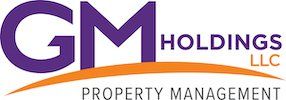Tips for New Landlords

Tips for New Landlords
Stepping into the role of a landlord for the first time can be exciting and daunting. You are about to transform an empty space into someone's home, and at the same time, you're managing a valuable asset. This journey is filled with key responsibilities, like ensuring timely rent collection, maintaining the property, and navigating tenant relationships. It's more than just owning property; it's about fostering a harmonious and profitable rental experience. For those in Philadelphia's bustling real estate market, these initial steps are crucial in setting the stage for a successful landlord experience.
1. Understand the Implications of Being a Landlord
Being a landlord is much more than just collecting rent and enjoying passive income. It's a multifaceted role that includes responsibilities like property management, dealing with tenants, and staying on top of legal and financial matters. One of the key benefits is the steady income stream, which can be particularly valuable in times of economic uncertainty. However, this comes with a range of responsibilities and potential challenges.
One major aspect of being a landlord is the stress and demands of property management. Dealing with repairs and maintenance is a big part and can be costly and time-consuming. Moreover, managing tenant issues, whether it's late rent payments or property damage, can take a lot of effort and patience.
There are also significant legal responsibilities to consider. Being aware of and compliant with the laws and regulations governing rental properties is crucial to avoid litigation. This involves understanding tenant rights, property safety regulations, and other legal aspects of property management.
Financial risks are another vital consideration. While rental income can provide financial stability, it's not guaranteed. Tenants may default on payments, and vacancies can lead to a loss of income. You must prepare for all the work, responsibilities, and financial risks.
2. Set the Right Rent Price
Setting the right rent price is a delicate balance. As a landlord, you can decide your rent, but aligning it with fair market rent is essential to avoid potential pitfalls. Pricing too high can lead to extended vacancies, as your property might surpass the budget of most renters in the area.
On the other hand, a rent price that's too low could attract a high number of applicants but might result in lower returns and possibly attract less desirable tenants. To determine a fair market rent price, it's important to assess local rental market trends, consider your property's unique features and condition, and understand the demographics of your prospective tenants.
Your property's location, size, and amenities play a significant role in this assessment as well. Additionally, staying informed about the economic conditions affecting the local real estate market is vital. This includes understanding the median income of residents in the area as it impacts their renting capabilities.
3. Screen Tenants Carefully
Some tenants can be quite the troublemakers, which is why you need to screen tenants carefully to avoid potential issues. Inadequate screening can lead to problems such as non-payment of rent, property damage, or illegal activities, which can be costly and stressful.
To effectively screen tenants, start with a pre-screening process. This involves initial interviews to understand their needs and to ensure they meet your basic criteria. Next, conduct thorough background checks. Verify their credit history, criminal records, financial stability, and references from current and previous landlords. From there, verify the applicant’s income and rental history to assess their financial stability and the likelihood of timely rent payments.
Also, you need to define your rental criteria clearly and avoid discrimination. Establish fair and objective standards for evaluating applicants, such as income requirements and occupancy standards. When you compare each applicant to these criteria rather than to each other, you can prevent discrimination and ensure a standardized method for evaluating tenant qualifications.
4. Have a Written Rental Agreement
Having a written rental agreement is fundamental. It serves as a legal contract that clearly outlines the terms of tenancy, and protects both the landlord and the tenant. Without a written lease, enforcing lease terms becomes challenging. Some of the key elements of a lease include names of the parties, property address, lease term, rent amount, rent due date, and security deposit details.
Choosing between different types of leases, like month-to-month or annual agreements, depends on your goals as a landlord. While annual leases offer stability, month-to-month leases provide flexibility for changing circumstances. Consider using software for lease agreements to ensure legal compliance, accuracy, and efficiency.
5. Respect the Rental Laws in Your State
Respecting rental laws in your state is paramount as a responsible landlord. Each state has its own set of regulations and statutes that govern landlord-tenant relationships. Understanding and adhering to these laws is essential to ensure you operate within the boundaries of the legal framework.
Rental laws cover various aspects, including lease agreements, security deposits, eviction procedures, and maintenance responsibilities. It's crucial to familiarize yourself with your state's specific laws to avoid legal issues and potential disputes with tenants. Failure to comply with these laws can lead to legal consequences, financial penalties, and even eviction delays.
6. Consider Hiring a Property Management Agency
Hiring a property management company can take a lot off your plate as a landlord. These companies offer comprehensive property management services that include leasing, rent collection, maintenance, and more. When you enlist their expertise, you can streamline the management of your rental property and ensure a smoother landlord experience.
Property management companies also have the resources and knowledge to market your property effectively, which will attract suitable tenants. They also excel in rent collection and ensure consistent and timely payments. Even better, maintenance and repairs are a breeze with their network of skilled professionals, enhancing the longevity of your property.
Moreover, property management companies can handle tenant relations and dispute resolution, relieving you of the burden of dealing with difficult situations. They’re well-versed in local rental laws, ensuring legal compliance throughout the tenancy.
Maximizing Your Landlord Experience
Being a new landlord comes with a lot of responsibilities. It's truly a lot of work and should be treated like a business. From setting the right rent price to screening tenants carefully and respecting rental laws, every step matters. One option to make this journey smoother is to hire a property management company. They can handle leasing, rent collection, maintenance, and more, allowing you to enjoy the benefits of real estate ownership without the daily grind.
If you're looking for professional property management services in Philadelphia, visit GM Holdings Management. We offer comprehensive solutions to ease your landlord journey. Don't hesitate to get in touch and make your life as a landlord more manageable.





